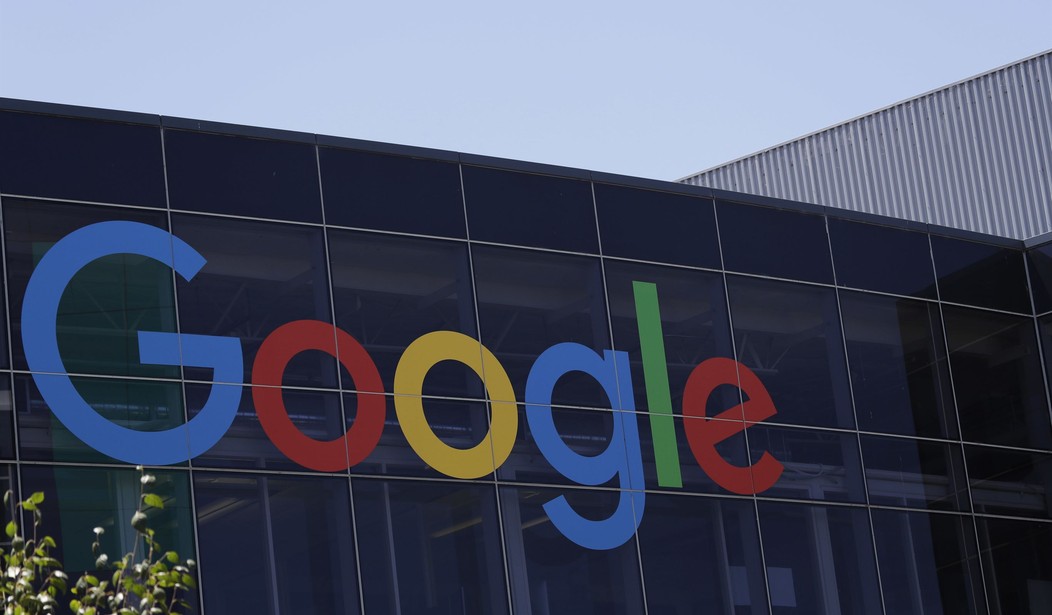On Tuesday, the Bruce D. Benson Center for the Study of Western Civilization at the University of Colorado will host a debate titled, “Does AI pose a threat to our democracy?” Arguing the affirmative is Katie Pavlich, Fox News contributor and editor of this publication. Arguing the negative is Brent Orrell, Senior Fellow at the American Enterprise Institute.
The event is part of the Campus Liberty Tour, an annual debate series organized by The Steamboat Institute, a non-profit organization founded in Steamboat Springs. For years, the series has convened preeminent public figures on college and university campuses across America to passionately yet cordially deliberate the most pressing issues facing our nation and the world. Yet for the thought crime of endeavoring to foster diversity of opinion, The Steamboat Institute has run afoul of Big Tech.
Big Tech throttling or downright extinguishing what it deems unworthy content—often labeled as “harmful,” “inappropriate,” or “misleading”—poses existential risks to our way of life. The issue was prominently and recently examined at the Supreme Court, where oral arguments were heard in Murthy v. Missouri (originally filed as Missouri v. Biden) on March 18. At issue is whether the federal government violated the First Amendment by “coercing” or “significantly encouraging” social-media companies to demote or remove content from their platforms, specifically content critical of the Biden administration.
The problems are evident. Big Tech’s content standards are vague, but are applied in such a way that they disproportionately impact content that is considered “conservative.” Moreover, there is usually little recourse to those who suddenly find themselves locked out of their own account or unable to access the full range of services otherwise offered by a certain platform. To the extent that there is recourse, it is often a maddening, humiliating, and labyrinthine journey of interactions with faceless actors. Such was the case for The Steamboat Institute.
Recommended
As part of its usual efforts to drum up interest, the organization sought to promote the debate about AI on Facebook and Instagram. (It’s worth stressing that AI is likely the most disruptive and consequential technology of our time, and, in turn, is one of the top sources of discussion both at home and abroad.) Twice, nonetheless, its paid advertisements were “rejected.” “This ad,” read the response from Meta (the conglomerate that owns both Facebook and Instagram, among other platforms), “doesn’t comply with our Advertising Policies. You can edit the ad(s) or go to Business Support Home to request another review.” By amending the ads to describe the debate in a far more sterile way, “AI and our Democracy,” they proved sufficiently inoffensive and were accepted.
This wasn’t the first time The Steamboat Institute had come into conflict with Big Tech. It recently received a warning from Google for its YouTube channel—yet Google didn’t bother to specify what content had triggered the warning. To remove the warning, the organization was provided the opportunity—but in effect required—to undergo “misinformation training.” The training took about 45 minutes to complete and covered thinly veiled questions about the forthcoming presidential election. “Jamie is upset that her favorite candidate for the 2020 Brazilian election did not win,” began one question. “She goes online and posts a video claiming that the election was won by voter fraud. Is this a case of misinformation?”
According to Google’s “Community Guidelines,” for having completed the training, the warning should now disappear from The Steamboat Institute’s YouTube channel within 90 days. However, if the organization receives a second warning during that window, it will receive a “strike.” Three strikes and its account will be banned. Is there any coming back from that penalty? It’s wholly unclear.
There is of course longstanding, deep concern about Big Tech harming free speech by silencing particular views and beliefs. But this is going a step further—banning a debate whose stated purpose is to advance free speech itself. Apparently Big Tech is so sensitive that it was triggered even by the prospect of a public event that will feature a prominent advocate of AI, who will be afforded an unimpeded and equal opportunity to make a compelling case for the technology—and, by extension, massive corporations that employ it.
We can hope that favorable rulings in cases like Murthy v. Missouri will ward off seemingly untouchable corporations from using creative methods to circumvent the Constitution in the medium and long term. In the short term, individuals, companies, and non-profits must take defensive measures to protect their livelihoods. Even if the extent of your online use is banking, you too are susceptible to cancellation. As such, it’s critical to use services that are either explicitly neutral in terms of speech or patently dedicated to free speech. At the very least, backstop your online functions with alternatives.
The stakes couldn’t be higher. If you remotely sense that you’re on what Big Tech considers “the wrong side of history,” it’s not a matter of “if,” but rather “when.”
Jennifer Schubert-Akin is Chairman and CEO of The Steamboat Institute, which she co-founded in 2008. Follow: @Steamboat_Inst

























Join the conversation as a VIP Member